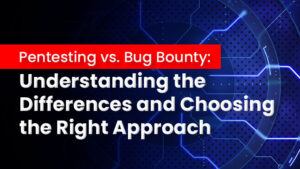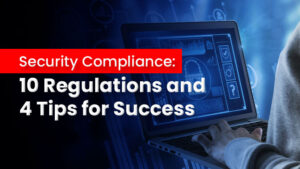Introduction
Today, more people and companies use the cloud in some capacity, sometimes without even being aware of it. Regrettably, individuals are not always as safe as they should be since they are unaware of using the service. Thus, it is becoming more crucial to understand how to secure data in the cloud. Data security hazards frequently increase as more firms move their operations to the cloud. Regarding flexibility and scalability, the cloud can be quite advantageous, but it also presents some special issues for data security. All types of businesses are quite concerned about security in the cloud. A successful attack may lead to losing private information, downtime, and reputational harm. We will understand why security in the cloud is important and look at some of the most significant considerations in this article regarding safeguarding the data on the cloud.
Check out our Cloud Computing Courses now if you want to start your career in Cloud Computing.
Cloud Security
The cloud-based applications and systems should be protected by a combination of policies, controls, procedures, and technology known as cloud security.
How Secure is Cloud Computing?
Undoubtedly, the public cloud service providers users are already familiar with, like Amazon, Google, and Microsoft, provide a more secure environment than one could ever expect to achieve with on-premises servers.
However, even while cloud service providers are great at securing the data in the cloud, they cannot shield users from stolen credentials.
The latter occurs daily in every business as staff members access, download, and transmit data to and from various devices and recipients in various settings.
Why is Security Important in Cloud?
Cloud security, sometimes called cloud computing security, is a group of security controls intended to safeguard the data, programs, and infrastructure in the cloud. These steps guarantee device and user authentication, data and resource access control, and privacy protection. They assist with regulatory compliance as well.
Since most businesses already use cloud computing in some capacity, cloud security is essential. According to a recent analysis from Gartner, Software as a Service (SaaS) will continue to dominate the global market for public cloud services.
IT experts are still concerned about security, governance, and compliance challenges when businesses keep their electronic data in the cloud, despite businesses moving more data and apps there. They are concerned that sophisticated cyber threats or unintentional breaches may compromise highly private corporate data and intellectual property.
Strategies for Cloud Data Protection
The following are strategies for protecting cloud data:
-
Use a Cloud Service That Encrypts
The first defense against identity thieves is to use a cloud service that encrypts the contents on the PC and in the cloud. Encryption prevents other parties, service administrators, and service providers from accessing private data.
Weak passwords account for over 75% of attacks, so users must take extra care while generating their own. Never use just letters when making a password. Make careful use of numbers, symbols, and capital and lowercase letters. Finally, avoid using the same password for many accounts and constantly update the passwords.
Using a Virtual Private Network is another way to safeguard the devices. A VPN creates a private network while connecting to open internet services. It offers safe connections that are encrypted to protect the data as well as online privacy.
-
Use Two-Factor Authentication
Use two-factor authentication wherever it is a possibility. This implies that anyone attempting to enter the account will want more than just the password. Answering a secret question, supplying a personal PIN, or entering a code that the cloud provider emails or texts to users are typical forms of authentication. Alternatives include installing an authenticator app.
-
Do not Store Sensitive Information
Avoid putting private data in the cloud. Consider what other information someone might obtain besides the obvious, such as the social security number, copies of the identification, or significant financial statements, even older ones.
-
Use a Strong Anti-Malware Program
The laptop, smartphone, tablet, or any other device that uses the cloud needs to have robust antivirus and anti-malware security since the cloud transports data across the internet. These applications assist in blocking dubious downloads and URLs. Some additionally provide functions, including backups, remote wiping, and device locating services.
Not all of the company’s employees require access to every piece of information users have. Following the organizational hierarchy, assign user permissions. This guidance is intended to stop staff workers without the appropriate expertise from mistakenly changing crucial datasets. Having too many or poorly ordered permissions may seem obvious, yet many firms still make this mistake, which always results in problems.
Users may determine where improvements are needed by looking at how well the company performs concerning security settings. When users keep the system in the cloud, it almost surely needs frequent maintenance or adjustments. One should test the defense system to make sure it is operating effectively.
-
Install Updates to the Operating System
Although it may be easy to ignore the warnings telling users when the operating system needs to be updated, these upgrades are frequently essential for ensuring the computer’s and data’s security. They frequently serve to correct system flaws that put users in danger.
-
Use a Reputable and Well-Known Cloud Provider
A trustworthy and well-known cloud provider is one of the users’ most crucial steps to secure cloud security. Before choosing a supplier, conduct thorough research on them and look for reviews and user feedback.
-
Implement Strong Authentication and Authorization Measures
Implementing robust authentication and authorization controls is crucial in guaranteeing cloud security. This entails ensuring that data and applications are only accessible to authorized users and that each access is appropriately registered and tracked.
-
Use Security Tools and Services
The cloud environment can be secured using various security tools and available services. Make sure to investigate the possibilities and choose the ones that best suit the requirements.
-
Stay Up-To-Date On Security Threats
Maintaining a current understanding of potential security threats is one of the greatest ways to stay ahead.
Watch what happens in the account, and look into any unusual activities.
-
Maintain Software Updates
Make sure to update the software, including the operating system and browser, with the latest security patches.
Conclusion
Considering the security consequences of this transformation is crucial as the globe migrates more and more to cloud-based solutions. The flexibility and cost reductions that the cloud can provide are substantial, but it also introduces new dangers that must be controlled.
Our lives cannot function without the cloud, both personally and professionally. Using it, we may access our data from anywhere in the world.







